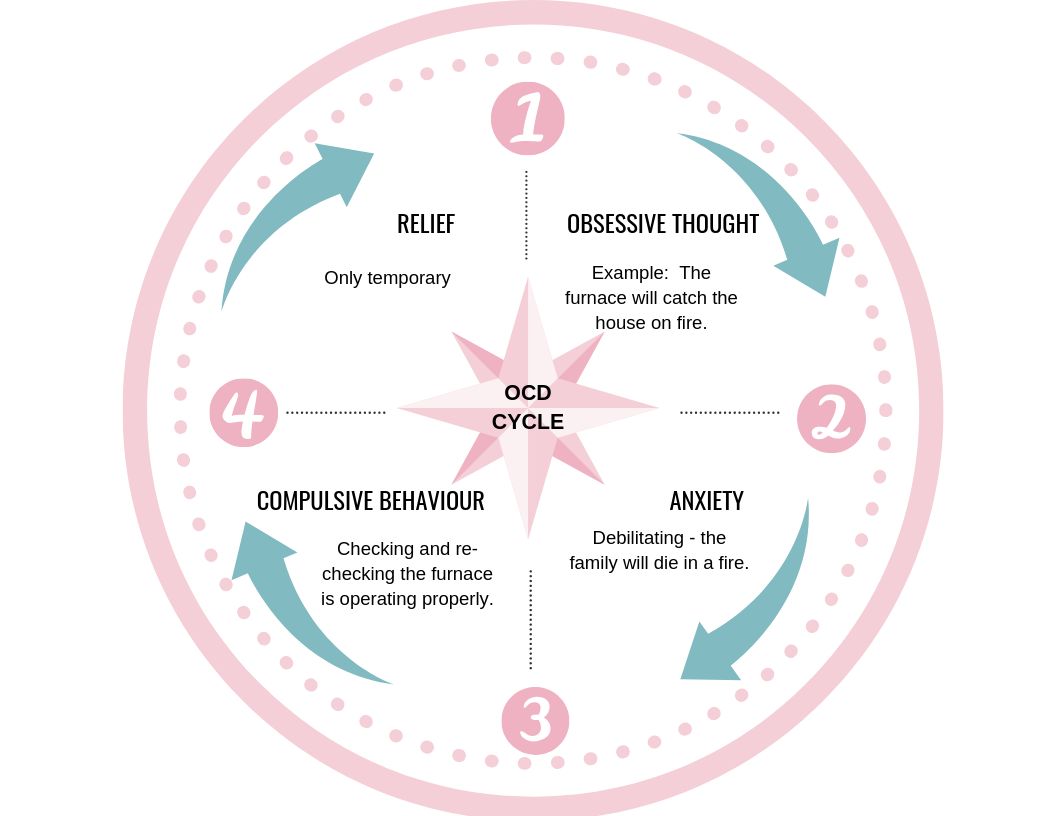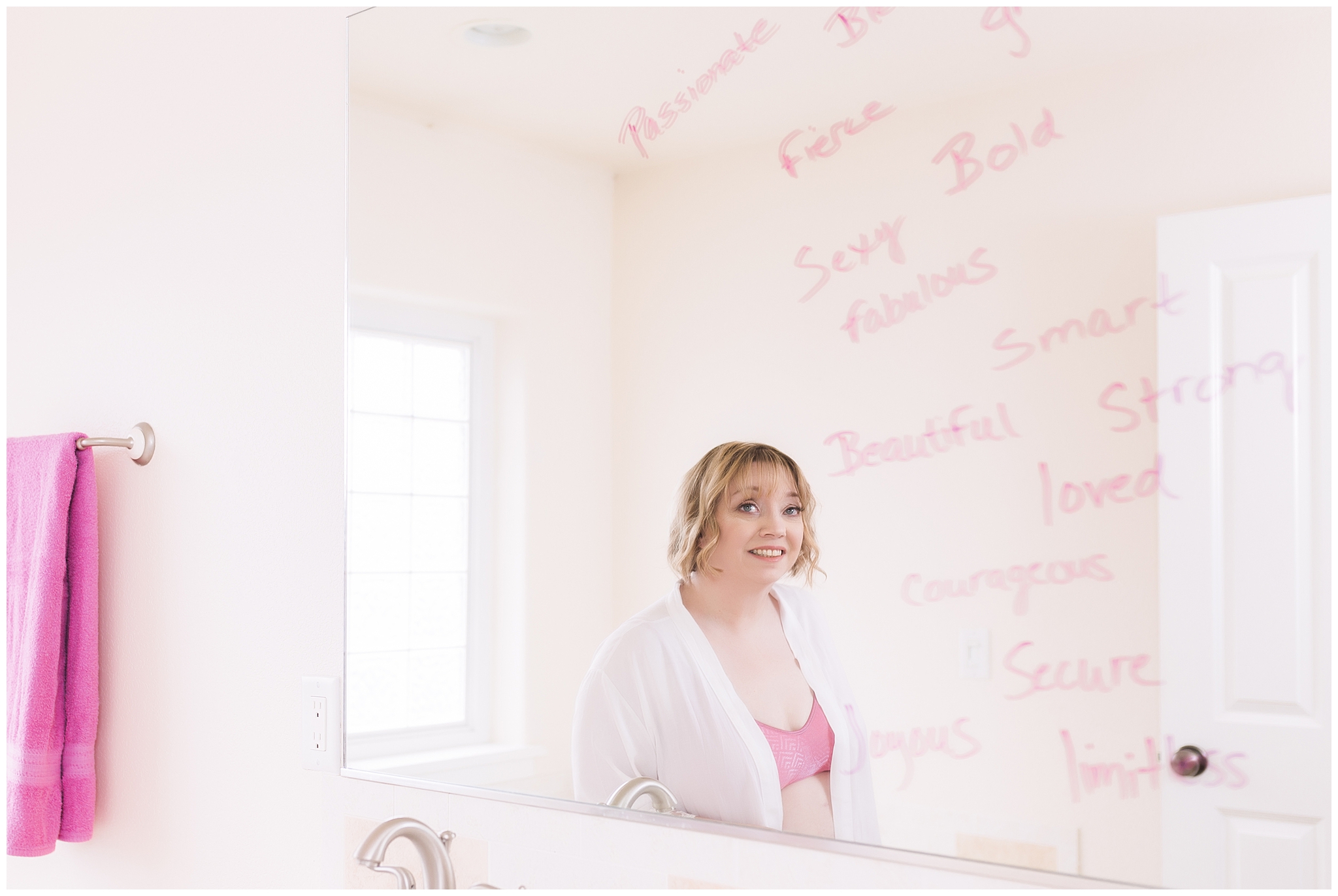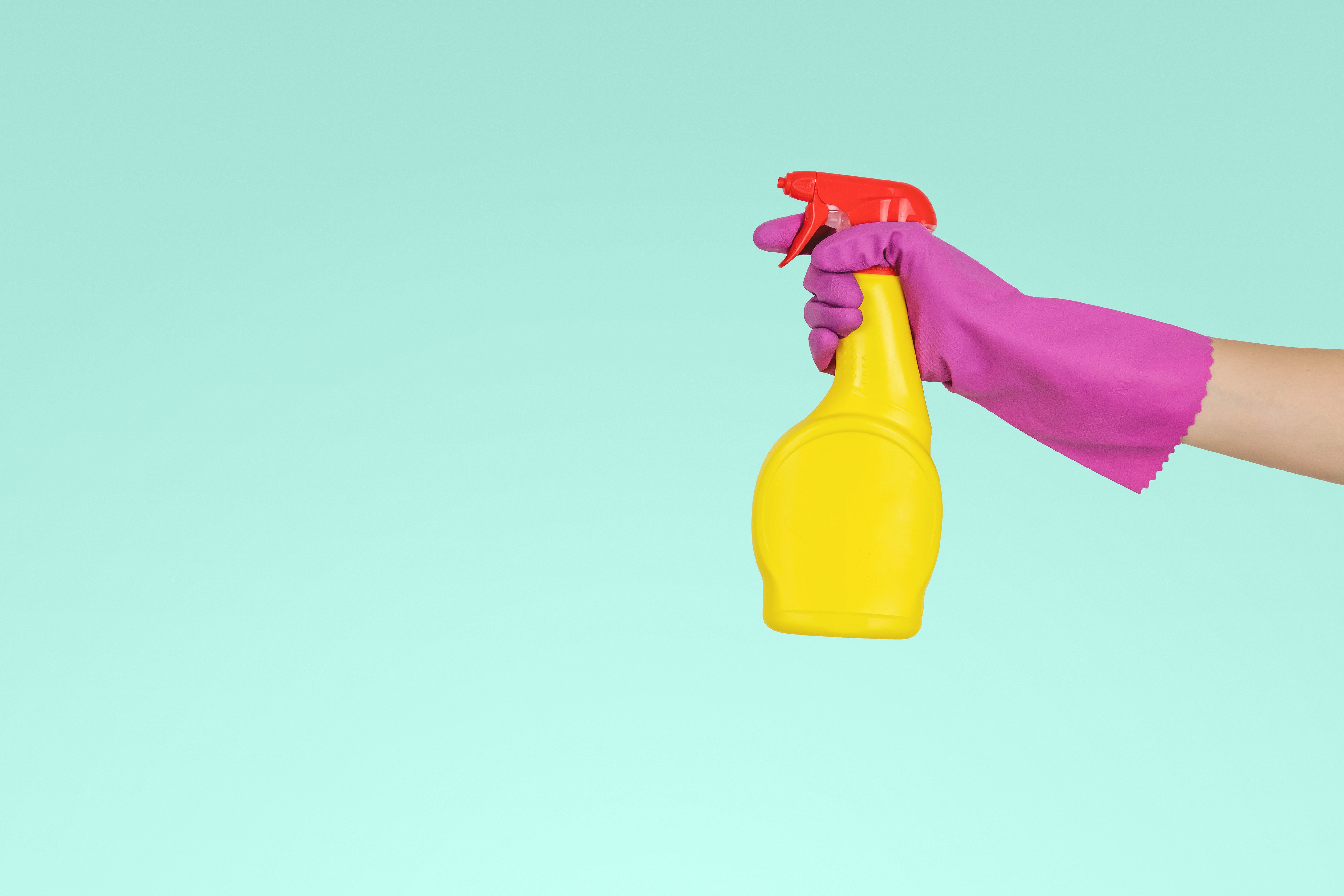NOT A GENERIC TERM
Please stop glorifying OCD.
A migraine is not a generic term for a bad headache.
The flu is not a generic term for a bad cold.
There is no such thing as a “stomach flu.”
And, OCD is not a generic term for an eccentric person who likes things neat and orderly, or for someone who is meticulous or particular, so stop glorifying it.
OCD is more than being a perfectionist. It’s more than excessively worrying about real life problems. OCD is irrational. It’s not real world problems.
I cringe when I hear or see people say things akin to, “I’m sooo OCD!” When did OCD become a social norm, or something to strive for? I find myself having to justify my OCD diagnosis by saying things like, “I TRULY have OCD,” or “I LEGITIMATELY have OCD.” As in, I take medication for it and it disrupts my life.
That’s the thing about OCD – it’s an intruder…a villain, and an enemy. It’s distressing. It’s debilitating. It’s not fun and it’s certainly not funny.
OCD IS AN ANXIETY DISORDER
Some people may have OCD tendencies or characteristics, but unless those tendencies interfere with your quality of life – then you likely don’t have OCD. And I can’t think of any reason why someone who truly has OCD would glorify it by throwing around the term as if it’s something to be proud of.
People with OCD don’t do the things they do because they ENJOY them, they do them because they HAVE to…to reduce their anxiety.
So, if you separate your M&Ms by color because you think it’s fun. You likely don’t have OCD. If you separate them because, for example, it makes you anxious to have the colors commingling, you might have OCD. If you like all the labels on the cans and boxes in your pantry facing forward because it’s easy for you to see what’s on the shelves, you likely have good organization skills, not OCD. If you have to have all the labels facing forward because it makes you anxious otherwise…regardless of the source of the anxiety, you may have OCD.
OCD takes on many forms. There are many OCD tendencies. Many behaviors. Many things to obsess about. Many compulsions.
OCD is exhausting. It can consume a great deal of your day.
There’s a vicious cycle to OCD and it looks like this:

The cycle of OCD
WHAT DOES OCD LOOK LIKE FOR ME
As a child I used to have sensorimotor OCD – I’d blink my eyes tight. ALL. THE. TIME. And, if I wasn’t blinking my eyes, I’d wrinkle my nose. OVER. AND. OVER. AGAIN. For hours on end.
My parents were often scolding me for it – they didn’t understand. How could they? I didn’t understand, and because of this I couldn’t vocalize the NEED to do it. I was teased incessantly. I wanted to stop, but I couldn’t.
It means I get a word or phrase stuck in my head. I say it OVER AND OVER AGAIN to myself to the point that my mouth and jaw start to hurt, and I get a headache because I’m partially mouthing the word(s). I try to say the word faster and faster and faster….picturing a washing machine on spin cycle, and if I say it fast enough maybe, just maybe, the word will fly out of my head into an abyss, never to enter my head again. It never works.
It meant waking up in the dead of winter with the idea that the furnace was going to blow up…going downstairs to check on the furnace, make it up the stairs, and turning right back around to go check OVER. AND. OVER. AGAIN.
What was I checking exactly? To this day I don’t know, but I can tell you after more than an hour of trekking up and down the stairs, I turned off the furnace and grabbed extra blankets to put on my children so they wouldn’t freeze during the night – which in itself presented a whole new set obsessive thoughts followed by compulsions.
It means having disturbing thoughts – that haunt me. Where do they come from? I don’t know. If I did, I’d stay away from the source. I beat myself up and start praying…asking God to forgive me for such thoughts…thoughts that I have no control over, so why am I asking for forgiveness for something I can’t control? Because the compulsion to ask for forgiveness is the only way to get any relief from the disturbing thoughts, and so I kept doing them.
It meant after using the bathroom, flushing, washing my hands, that I’d trek back to the bathroom to be sure that I REALLY flushed the toilet. Back and forth I’d go…sneaking out or making an excuse as to where I was going. OVER. AND. OVER. AGAIN.
This was a particular problem when I used the bathroom at work.
A part of me always knew that I’d flushed, and wondered, “so what if I didn’t?” And yet, I couldn’t stop myself. I had to check…knowing that someone else likely used the same stall I did sometime between my ‘checks’ didn’t matter.
I worked 12 hour shifts at the time so using the bathroom couldn’t really be avoided, but it might be why I can hold it now for more hours than is likely normal or healthy…all so I can stay out of the public bathrooms and keep the obsessive thoughts and compulsion to check at bay.

I’m a lot of things, but OCD isn’t one of them.
NO LUCKY NUMBERS
It never meant that a particular number for me was ‘good’ or ‘lucky.’ It does for many people with OCD, but not for me. I didn’t, and still don’t, count the number of times I lock the door, turn off the stove, or set the alarm clock, but instead rhythm is important to me.
It’s about the turning the deadbolt back and forth in a rhythmic pattern and finally pushing it to the closed position at the end of the pattern so it ‘stays put.’ Alarm clocks are similar. Whether it be a big ben wind up type clock or a clock radio….I pull the pin or push the button back and forth in a rhythmic pattern, pulling the pin out or pushing the button over at the end of the pattern so it gets stuck on the “set” position.
Scott now keeps the clock radio on his side of the bed and sets it. I use my cell phone as an alarm and I can’t rhythmically set it, but I lose sleep over constantly checking to make sure it’s set. OVER. AND. OVER. AGAIN.
It meant that I didn’t get my driver’s license until I was 37 (with private lessons thanks to the VA) because I’d put my foot on the break to get ready to start the car and have to move the seat back to visually check to make sure my foot was on the brake and not the gas. Then, I’d slide the seat forward again…get ready to start the car, and uncertain if my foot slipped off the brake pedal and made its way to the gas pedal, I’d have to slide my seat back again. OVER. AND. OVER. AGAIN.
It meant that I’d clean the same thing OVER. AND. OVER. AGAIN. It meant that my children learned to clean instead of play, when they were finished with normal childhood chores or homework because they misunderstood my intentions and my compulsions.
OCD AFFECTED MY FAMILY
It wasn’t until I came home from work one day, and my two oldest children at ages 9 and 5, who were admittedly latch-key children, were on their hands and knees washing the floor. When they came home from school, they always called me to let me know they were home and that the door was locked.
They were permitted to get a drink of water out of the plastic cups on the first shelf of the cupboard. They weren’t permitted to eat anything out of my fear that one of them would choke. They could do their chores, but they couldn’t open the dishwasher – because something might break and harm them or a knife might cut them.
I was on active duty in the Navy at the time and everyone knew that no matter what I was doing or where I was, that if my children called, I was to be notified right away because they were home alone.
So, what possessed my children to think it was ok to get cleaning agents, a bucket, and rags, and get on their hands and knees to wash a floor that wasn’t even dirty when I wouldn’t let them eat or even open the dishwasher?

Someone with OCD doesn’t clean because they enjoy it.
That’s when I knew it was time to talk to the psychiatrist that I was already seeing for Major Depressive Disorder (MDD) and trauma, about these quirks that I had. That’s when I first heard OCD.
I have and had many other OCD symptoms. I take medication for my OCD and I talk about it in therapy.
OCD is not something to be glorified. OCD isn’t something to strive for.
If you think you DO have OCD contact your primary care provider or mental health provider. There are treatments available.
The term OCD shouldn’t be used flippantly. It’s hurtful and harmful, and if you do so, you’re minimizing the effect OCD has on people like me and my family. Name one other illness that someone would say he or she had with such complacency.
Cancer? Muscular Dystrophy? Multiple Sclerosis?
Would you say, “I’m sooo cancer?”
JUST STOP
No. No, you wouldn’t.
Stop saying you’re OCD. People aren’t OCD – they have OCD, and it’s not a joking matter.
SO. JUST. STOP.

I’ve never though about that but you are right. I hear people through around OCD a lot. I always try to be careful with terms that I use. When I am feeling sad, I won’t say I am depressed because I know that’s not trully the case.
This sounds so difficult. I must admit, I have made a comment about OCD tendencies before and this article will make me so much more mindful about being so flippant about the phrase.
I’m seeing this illness in a whole new light. Thanks for the article! <3
Very very true. When I was young my mom worked at a home for folks with developmental and mental disabilities, and she was always very very strict about us NEVER using the word “retarded” (it was really overused back in the 80s). You are right, we shouldn’t use OCD incorrectly either.
Great insight and I agree. I think jokes aside, people do not fully understand how it can be hard for people and this type of silly talk can hurt people who are really diagnosed as such. Thank you for calling it like it is !
Thank you for sharing this. I often here people using the term in a lackluster way without much thought. I appreciate your clarification and distinction
Thank you for bringing awareness to this. I will think twice before using the term. 🙂
Thank you for sharing your experience with this!
Thank you for bringing this to my attention. Guilty here for using that term about my perfectionist moments. Being mindful & considerate of using this term no longer be consciously practiced.
This is so well stated and perfectly brings awareness to others who might be mindlessly throwing this term around.
What a great, thought-provoking post! Thank you for sharing it. I’ve been guilty of saying flippant things about my “OCD tendencies” because I adore a clutter-free, organized life, but now I know better and will refrain from that in the future. The struggles of real OCD sound horribly exhausting and overwhelming. I am glad you sought help and appreciate this post.
I have a son who has severe OCD. We work on the challenges, and are thankful for the blessings. For instance, if I need something sorted or cleaned, he is awesome at it.
OCD can affect those around you but getting help is awesome. My friend has taught me so much about what she deals with and I have a much better understanding of her thought processes.
I have some of these same tendencies in my home and it’s good to know I’m not alone!
Thanks for sharing your experience. Awareness is important. It’s great you’re helping people to understand!
Always transparent! Love.
Thank you for being open with all of us about what you battle with. It shows your strength and courage. OCD is absolutely serious and not a term to be casually and humorously used. Ever since I got my Masters in Counseling and studied different diagnoses I finally understood what OCD really means, and I started telling my friends to stop using the word in the way they were. I hope it fades out in social language frequency! Keep up your good work in therapy. I’m glad you’ve found medication that helps too!
Wow- thank you for sharing this open and honest post. My husband has anxiety and OCD. Most of the time he is good natured about it, but I can see how this would be extremely annoying.
Thank you for educating others and sharing your experiences!
I can’t understand this with this particular illness, but I can empathize with you in some ways. My bonus son has severe mental and physical disabilities, the most obvious being a more severe diagnosis of Down Syndrome. It drives us crazy when people say “He’s a Downs kid.” No, he’s not. He HAS Down Syndrome. And that opened the door to a whole slew of other issues. We also take personal issue with the big R word (retarded). We don’t use it in our home and often have explained to our children’s friends why it’s inappropriate. Sorry for the lengthy comment. Your story just hit me in the feelers today. Thank you for being open enough to share.
My daughter has OCD tendencies (nothing like your symptoms) and her counselor recently added that to the other things they are working on. It is definitely misunderstood and laughed about, and I thank you for shining some light on it!
I am printing this. My kids throw this around and it bothers the heck out of me. They do not understand what it is! They WILL read this.
It was perfect the first time. This is very really unique helpful information. I learn so much from you as well! Keep it up.
This was really interesting to read! I love the range of posts, there is really something for everyone. Thank you for sharing your suggestions too, great post!
Sounds like an awfully frustrating thing to have to go through. Thankyou for sharing a piece of your story.
Great post.
Like!! Thank you for publishing this awesome article.
Great post.
Good post. I certainly appreciate this site. Keep writing!